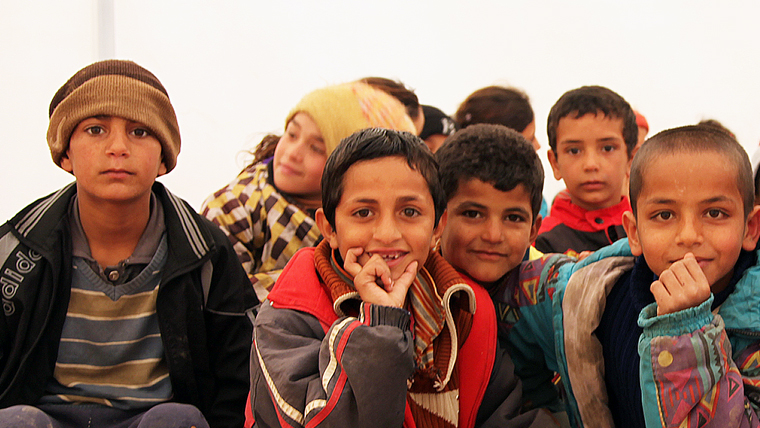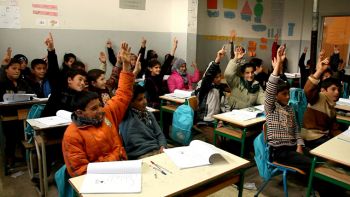A Thank You From A Family Four Hours Away

By Gavin Crowden, Head of Public Affairs, World Vision UK
Where can you get in four hours from London?
By car: Cornwall. By train: Scotland. By plane: Syria. That’s how close the worst humanitarian crisis since the Second World War is. Four hours.
I’m just back from Lebanon and Jordan where I saw for myself the size, scale and desperation of the Syrian refugee crisis. I saw children living in makeshift camps in the Bekaa valley, within sight of the Syrian border. I met families who had lost brothers, sisters, sons and daughters. I played peek-a-boo with children who had never known life outside a refugee camp.
It was in this camp - Za’atari in Jordan - that I met a fellow dad. I met his wife and children. They made me strong Arabic coffee in their immaculately clean caravan. And we talked - about life, our kids, our routines. It was a normal chat.
But then, in an instant, it wasn’t.
He was sitting on the floor with his legs tucked under him. I asked if there was a particular moment which made them leave Syria, having braved it out for the first two years of the conflict.
He brought his left leg forward. There were the most horrific shrapnel wounds. He said this was from the first bomb. He brought his right leg forward and the scars were worse. This was from the second.
This was the moment he knew he couldn’t protect his wife or his children anymore. They fled - the fear of the unknown less than the fear of staying at home. He spoke of how tough it was to get used to life in the camp. How desperate the conditions were when he arrived. How his youngest child was only four months old when they made that journey.
I sat and listened as he and his wife talked – their hopes and fears for their children, how much they wanted to work, and how much they longed to go home.
We talked for an hour then said our goodbyes. I stepped out of their home and looked across the tents and caravans stretching out as far as I could see. 90,000 people live in Za’atari camp - over half of them children. And I realised if I sat in any one of these homes I would hear a similar, heart-wrenching story.
World Vision is there, with your support, to make their lives better. We’re also in the communities which host the vast majority of refugees, living in unfinished buildings and garages. The work we do is often unglamorous – drainage ditches to stop tents flooding, setting up clean water tanks, building toilets. They are the building blocks for children’s survival.
 But we also help children be children - to learn and have fun. I met children bursting to go to school who, without World Vision – without you - wouldn’t be able to. I visited classes in Lebanon where kids were playing games, others where they were playing music, others still where they were learning English. They were schools as you and I know them - noisy, bustling, hopeful.
But we also help children be children - to learn and have fun. I met children bursting to go to school who, without World Vision – without you - wouldn’t be able to. I visited classes in Lebanon where kids were playing games, others where they were playing music, others still where they were learning English. They were schools as you and I know them - noisy, bustling, hopeful.
Just before I left that tent in Za’atari camp, I asked my hosts what they would like me to say to the UK people when I got back. I was taken aback by their answer: ‘thank you’. Thank you for thinking of us, for wanting to help and not forgetting us. So this is it – this is the thank you from an ordinary family four hours away who have experienced so much.
Four hours. This ran through my mind over-and-over on the plane home. The Syria crisis is not happening ‘over there’. It is happening here. On our doorstep. And you help us to make a difference to these children’s lives – and there are so many children who need it. This really is a children’s crisis.